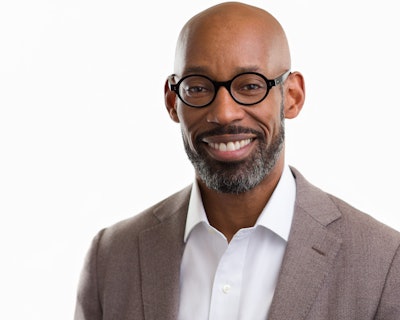The number of Black students pursuing associate’s degree and credential information technology (IT) programs is concerningly lacking, according to a new report from Jobs for the Future. Michael CollinsJFF
Michael CollinsJFF
The Oct. 26 report – Black Learners in IT Associate’s Degree and Credential College Programs – uses data from higher ed focus groups and the National Student Clearinghouse to examine the degree to which Black students are participating in these technology programs.
Looking at enrollment numbers from 2017-2021 at approximately 1,000 schools offering a two-year IT degree program or one-year IT credential program, researchers found that only around 400 had at least 10 Black students enrolled in said IT programs a year.
Of those 400 schools, Black students on average comprised 18.3% of students in IT programs per school, though in most schools in 2019 – 291 out of 451 – the percentage of Black learners was below that average, the study found.
And for each year from 2017-2021, out of approximately 180,000 students in IT programs nationwide, 24,000-25,000 were Black, according to the study.
On matters of retention and completion – both metrics did not count transfer students – new Black students in IT programs had an average retention of 38.6% (nine learners) from 2016-2020 and an average completion rate of 12.9%.
Along gender lines, the dwindling numbers of Black students becomes even more distinct. Just about 350 of the 1,000 examined schools had at least 10 Black male students in IT per year and approximately 155 had at least 10 Black female students.
Attaining associate’s degrees or credentials in IT may lead to high-wage, high-opportunity jobs, the report stated. However, in the way of these academic and pursuits can be structural barriers – many in the form of various policies and pedagogies – rooted in systemic racism.
According to the report and study authors, these hurdles include issues of affordability, insufficient access to information and support for opportunities; not enough access to grade-school STEM or AP courses; lack of Black role models and mentors in IT; exclusionary entry requirements; and implicit biases and negative stereotypes.
Although a JFF-sponsored survey of 1,000 Black Americans found that 45% who hadn’t studied a STEM subject said they had considered it, 21% said they thought it would be too difficult, 21% said they didn’t have enough information, and 14% said they felt it would be too expensive.
 Dr. Lois JoyJFF
Dr. Lois JoyJFF
"Too many black learners, when they go to postsecondary, end up being in programs that are not aligned to labor market opportunity,” Collins said. “Part of what the center's focus is on really is, how can we transform the education and training system to get more Black and brown learners into high-wage, high-demand programs, and by doing that disrupt occupational segregation."
Community colleges are “engines of growth” and economic development for communities, training society’s technicians, skilled workers, nurses, and teachers, and serving as an on-ramp to promising careers, said Dr. Lois Joy, report lead author and research director at JFF.
“Community colleges often lack resources to really do the job they're being asked to do, which is to connect people into these opportunities,” Joy said. “And oftentimes they're working in communities where there's high levels of poverty, so there are going to be socio-economic barriers that have been created and perpetuated from the other barriers we know about in society."
The report authors contrasted the “race-neutral” approaches to student support that most of the analyzed schools took – which look at socioeconomic, academic, social, and emotional factors – with “race-conscious” practices, calling for more of the latter to better close equity gaps.
Given the Supreme Court’s recent decision to strike down affirmative action and anti-DEI attacks at large, there is hesitance at community colleges to focus on race, Collins said.
"I think that there is confusion around what can and can't be done,” Collins said. "But the data is pretty clear. Race is a salient variable, and it matters with regard to education outcomes. We ignore that variable at our own peril. We have to grapple with it. We have to deal with it to have ... equitable advancement for all."


















